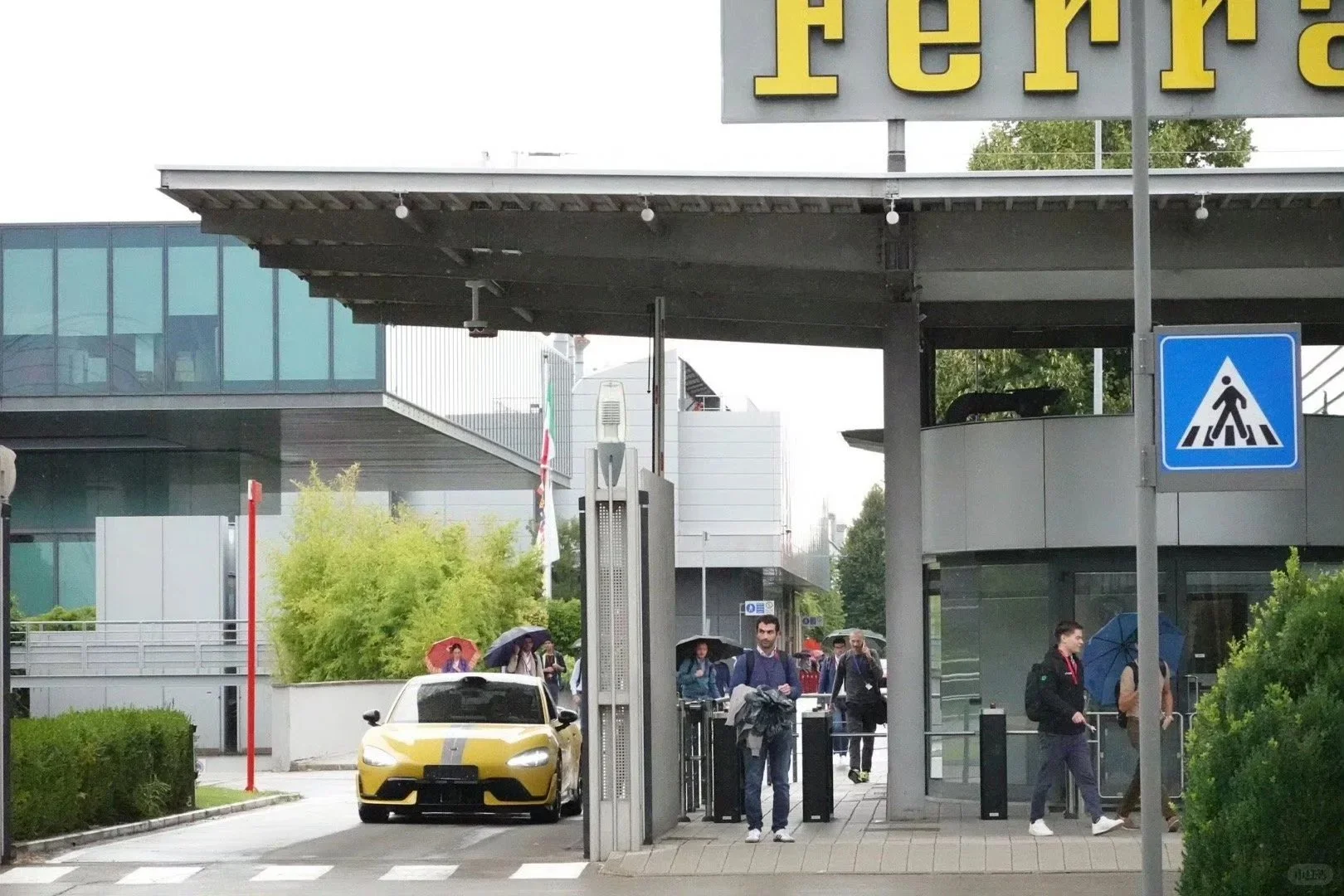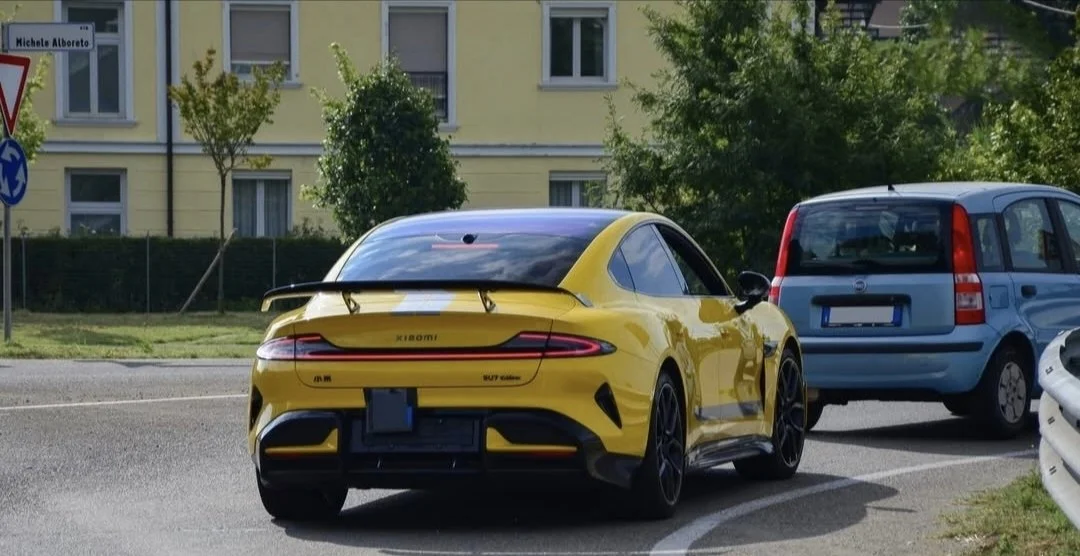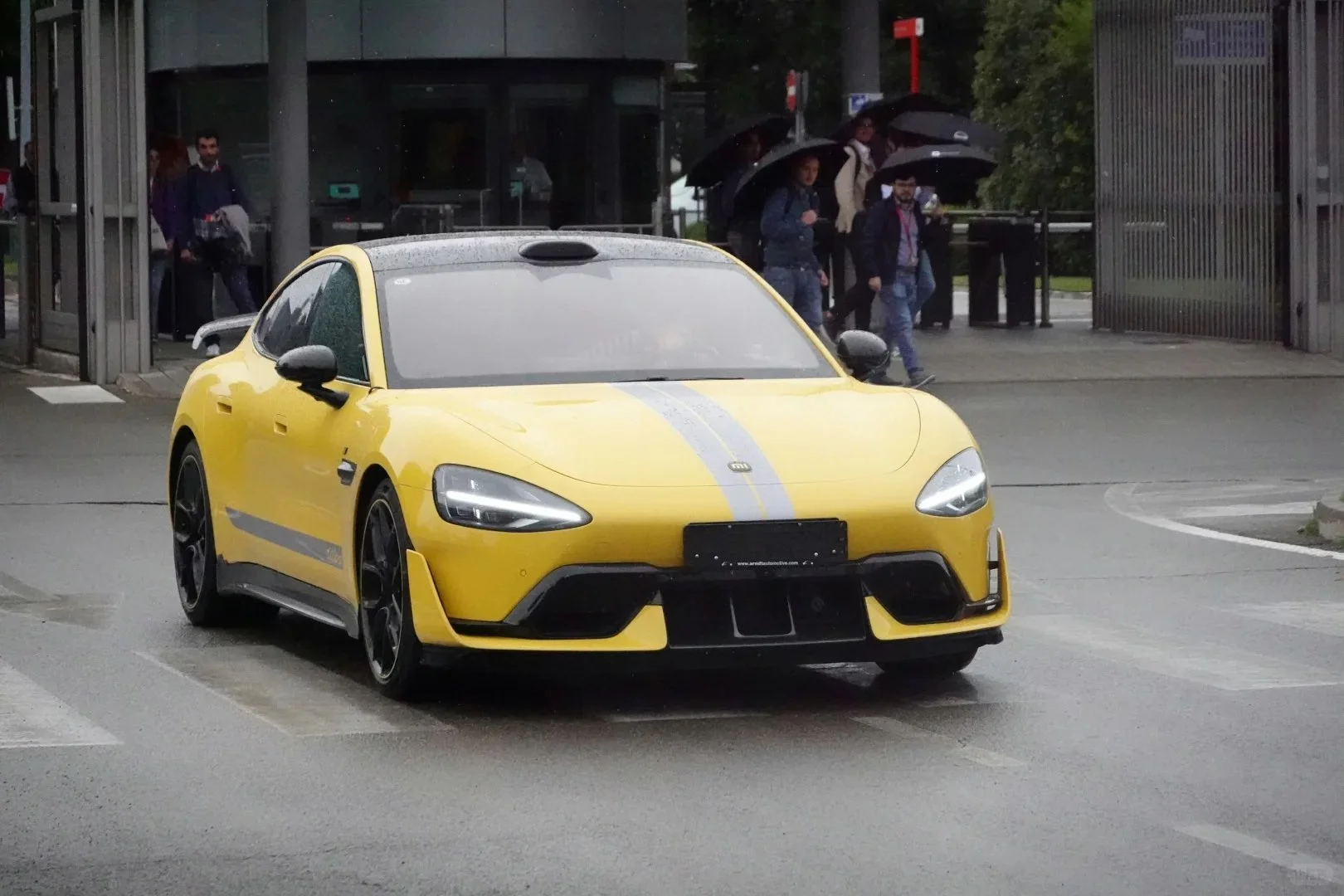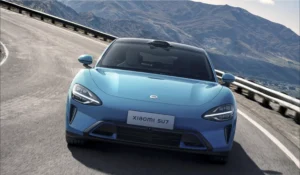Ferrari Gets the Xiaomi SU7 Ultra: A Chinese Giant Fuels Maranello’s Next Electric Revolution
In a move that’s sent shockwaves through the automotive world, Ferrari, the legendary Italian supercar maker, has reportedly snapped up a Xiaomi SU7 Ultra for testing and development of its upcoming generation of electric vehicles. This incredible news, flagged by sources like CNEVhome and MundoXiaomi on X, marks the first time Ferrari has ever used a Chinese electric vehicle (EV) for its R&D. Talk about a major industry shift! With a jaw-dropping Nürburgring Nordschleife lap time of 6:22.091, the SU7 Ultra hasn’t just grabbed the attention of car buffs; it’s caught the eye of one of the most prestigious brands on the planet. Let’s dive into this fascinating crossover between Chinese tech prowess and Italian automotive excellence!
An Unexpected Encounter in Maranello

Sightings of the Xiaomi SU7 Ultra rolling out of Ferrari’s factory in Maranello, Italy, have naturally sparked a ton of speculation. Is a collaboration on the horizon, or is Ferrari simply doing its homework on this impressive Chinese EV? According to posts on X from users like @DriveGreen80167 and @elandroidelibre, the SU7 Ultra was specifically acquired to aid in the development of Ferrari’s next-gen electric platform. This is a pretty big deal, considering Ferrari’s rich history with internal combustion engines and iconic models like the LaFerrari and SF90 Stradale. Still, they’re pushing hard into electrification, with their first all-electric car slated to debut in 2025.
Ferrari’s decision to study the SU7 Ultra isn’t out of the blue. Xiaomi, a company most of us know for its smartphones, has burst onto the automotive scene with incredible speed and ambition. Since announcing their entry into the car market in 2021 with a hefty 10 billion yuan ($1.4 billion USD) investment, Xiaomi Automobile has proven they’re anything but a casual player. The SU7 Ultra, their high-performance flagship, is a clear statement of their intent to go head-to-head with established giants like Porsche and Rimac.
The SU7 Ultra: A Nürburgring Prodigy

What really makes the Xiaomi SU7 Ultra stand out is its absolutely phenomenal performance, especially its epic run on the Nürburgring, affectionately known as the “Green Hell.” Sources like Wikipedia and CarExpert confirm that the SU7 Ultra smashed the circuit’s record with a lap time of 6:22.091 on April 1, 2025. This incredible feat makes it the third-fastest vehicle in the circuit’s history, trailing only the Porsche 911 GT2 RS MR and the Volkswagen ID.R. More importantly for this discussion, it completely crushed the Rimac Nevera (7:05.298) and the Porsche Taycan Turbo GT (7:07.55), solidifying the SU7 Ultra’s claim as the fastest production electric sedan ever to tackle Nürburgring.
The specific SU7 Ultra that set this record was kitted out with the Track Professional Package. This includes a set of lightweight 21-inch forged wheels wrapped in sticky Pirelli P-Zero Trofeo RS tires, Bilstein Evo R suspension for razor-sharp handling, and high-performance Endless MA45B brakes. On top of that, it boasts an advanced aerodynamic kit featuring 17 carbon fiber components, a massive 1.56-meter rear wing, and an active diffuser capable of generating up to 285 kg (around 628 lbs) of downforce. Powering this beast is a triple-motor powertrain churning out an astonishing 1,548 horsepower, allowing the SU7 Ultra to hit 0-100 km/h (0-62 mph) in a mind-bending 1.98 seconds and reach a top speed of 350 km/h (217 mph), according to MotorTrend.
So, Why the Ferrari Fascination?

Ferrari’s acquisition of the SU7 Ultra strongly suggests they see serious potential in Xiaomi’s tech. As TopGear points out, the SU7 Ultra isn’t just fast; it’s also remarkably well-priced. In China, it retails for 529,900 yuan (roughly $73,740 USD or €67,680 EUR), making it an incredible value proposition compared to rivals like the Taycan Turbo GT, which can cost upwards of $416,000 USD in some markets.
Ferrari could be meticulously dissecting several aspects of the SU7 Ultra for their own EV program:
- Electric Performance: The triple-motor setup and the 93.7 kWh CATL battery offer a compelling blend of raw power and efficiency that could very well inspire Ferrari’s own electric powertrain architecture.
- Advanced Aerodynamics: The carbon fiber components and the aggressive aero design of the SU7 Ultra, which generates downforce comparable to dedicated supercars, might influence the design language of Ferrari’s future electric models.
- Software Innovations: Xiaomi’s seamless integration of the SU7 Ultra with its HyperOS ecosystem and the Racetrack Master app, which provides real-time data and post-race analysis, could offer valuable lessons for Ferrari’s own telemetry systems.
- Cost-Effectiveness: Xiaomi’s ability to deliver a high-performance vehicle at such a competitive price point could inspire Ferrari to explore cost optimization strategies without sacrificing its inherent exclusivity.
Furthermore, the SU7 Ultra earned the highest score in C-NCAP safety tests under the 2024 standards, outperforming other vehicles tested. This points to its robust engineering and overall reliability.
A Milestone for Xiaomi and a Message to the Industry

The fact that Ferrari, a brand synonymous with exclusivity and peak performance, has chosen the SU7 Ultra for R&D is a powerful, albeit implicit, endorsement of Xiaomi’s rapid ascent in the automotive sector. Since its launch in March 2024, the SU7 has already seen over 19,000 units delivered in China, smashing its initial annual target of 10,000 orders, according to CnEVPost. Xiaomi’s commitment to automotive innovation is further cemented by their involvement with Nürburgring, including joining the exclusive Industriepool program and even having a “Xiaomi Curve” named after them on the track.
Ferrari’s interest also signals a broader shift in the global automotive landscape. Chinese manufacturers like Xiaomi, BYD, and NIO are increasingly challenging established Western brands with EVs that cleverly blend performance, cutting-edge technology, and attractive pricing. As InsideEVs aptly noted, the SU7 Ultra’s Nürburgring success represents a “fundamental shift in the balance of power” within the automotive industry, with China now outperforming established names like Porsche on their own turf.
What Does This Mean for Ferrari’s Future?
The acquisition of the SU7 Ultra strongly suggests that Ferrari is actively exploring various solutions for its very first all-electric vehicle, which is anticipated to break cover by the end of 2025. While Ferrari hasn’t spilled all the beans just yet, their focus on the SU7 Ultra could indicate a keen interest in high-density battery technologies, advanced electric propulsion systems, and innovative aerodynamic approaches for their upcoming electric supercar. Some posts on X, like one from @ArthurShen, even speculate about a potential direct collaboration between Ferrari and Xiaomi, though for now, this remains firmly in the realm of exciting speculation.
Bridging Maranello and Beijing: A New Era Begins
The Xiaomi SU7 Ultra has officially transitioned from being an intriguing offering from a smartphone giant to a bona fide benchmark in the world of high-performance motorsport. Its Nürburgring record and its presence at Ferrari’s Maranello headquarters are undeniable testaments to its impact. For Ferrari, this isn’t just a car purchase; it’s a clear signal that even the most venerable traditional manufacturers are looking towards China for inspiration in the race towards electrification. With a price tag that challenges hypercars and performance that seriously rattles the established elite, the SU7 Ultra is actively redefining what a high-performance EV can and should be. Could this be the dawn of a new era for both Ferrari and Xiaomi? Only time will tell, but right now, the electric roar of the SU7 Ultra is echoing all the way from the Green Hell to Maranello.








2 thoughts on “Ferrari Gets the Xiaomi SU7 Ultra: A Chinese Giant Fuels Maranello’s Next Electric Revolution”